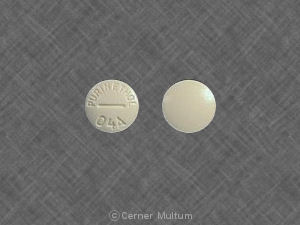Purinethol Dosage
Generic name: MERCAPTOPURINE 50mg
Dosage form: tablet
Drug class: Antimetabolites
Medically reviewed by Drugs.com. Last updated on Jan 3, 2024.
Recommended Dosage
The recommended starting dosage of PURINETHOL is 1.5mg/kg to 2.5 mg/kg orally once daily as part of combination chemotherapy maintenance regimen. A recommended dosage for patients less than 17 kg is not achievable, because the only available strength is 50 mg. Take PURINETHOL either consistently with or without food.
After initiating PURINETHOL, monitor complete blood count (CBC) and adjust the dose to maintain absolute neutrophil count (ANC) at a desirable level and for excessive myelosuppression. Evaluate the bone marrow in patients with prolonged myelosuppression or repeated episodes of myelosuppression to assess leukemia status and marrow cellularity.
Evaluate thiopurine S-methyltransferase (TPMT) and nucleotide diphosphatase (NUDT15) status in patients with severe myelosuppression or repeated episodes or myelosuppression .
Do not administer to patients who are unable to swallow tablets.
If a patient misses a dose, instruct the patient to continue with the next scheduled dose.
PURINETHOL is a cytotoxic drug. Follow special handling and disposal procedures.
Dosage Modifications in Patients with TPMT and NUDT15 Deficiency
Consider testing for TPMT and NUDT15 deficiency in patients who experience severe myelosuppression or repeated episodes of myelosuppression .
Homozygous Deficiency in either TPMT or NUDT15
Patients with homozygous deficiency of either enzyme typically require 10% or less of the recommended dosage. Reduce the recommended starting dosage of PURINETHOL in patients who are known to have homozygous TPMT or NUDT15 deficiency.
Heterozygous Deficiency in TPMT and/or NUDT15
Reduce the PURINETHOL dose based on tolerability. Most patients with heterozygous TPMT or NUDT15 deficiency tolerate the recommended dosage, but some require a dose reduction based on adverse reactions. Patients who are heterozygous for both TPMT and NUDT15 may require more substantial dose reductions.
Dosage Modifications in Renal and Hepatic Impairment
More about Purinethol (mercaptopurine)
- Check interactions
- Compare alternatives
- Reviews (1)
- Drug images
- Latest FDA alerts (3)
- Side effects
- During pregnancy
- Generic availability
- Drug class: antimetabolites
- Breastfeeding
Patient resources
Other brands
Professional resources
Other brands
Related treatment guides
See also:
Further information
Always consult your healthcare provider to ensure the information displayed on this page applies to your personal circumstances.


